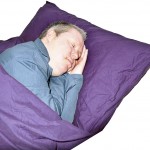
This review of the literature searched Medline and PsychInfo to find clinical trials and case reports which were published between 1975 and 2009, focusing on pharmacological interventions for sleep disturbance in children with developmental disabilities.
The authors found 58 articles that met the inclusion criteria, including 25 controlled trials in typical children and children with developmental disabilities, 15 uncontrolled trials in children and 18 controlled studies in adults.
They suggest that studies of melatonin show this to be the most widely assessed and safest choice for children with developmental disabilities. They also found studies that suggest trazodone, mirtazapine, and ramelteon might hold promise, but that at this stage there is insufficient evidence and further studies are needed.
The authors also point out that they found continued use of diphenhydramine despite a lack of evidence showing its effectiveness.
They call for well-controlled studies which use a range of outcome measures including objective measures and subjective reporting of sleep quality in order to improve the evidence base for paediatric sleep medicines.
Pharmacological treatment of sleep disturbance in developmental disabilities: A review of the literature, Hollway J & Aman M in Research in Developmental Disabilities, 32, 3, 939-962

There is a significant literature now describing sleep problems and the difficulties with causes for people and their supporters. Melatonin use has been reported in a number of studies, with one recent randomised trial showing melatonin treatment improves some key aspects of chronic sleep disturbance.
I wonder however to what extent pharmacological solutions are now considered the first port of call, and how much supporters of people consider other strategies?
Another study published a couple of years ago looked at a simple intervention, bedtime scheduling, and using an actigraph (small instrument worn on wrist or ankle to measure sleep-wake cycles) found that the effect of this intervention improved sleep quality.
This may not be the case for people with severe sleep disturbance, but I wonder what the experience of blog readers is in this area?